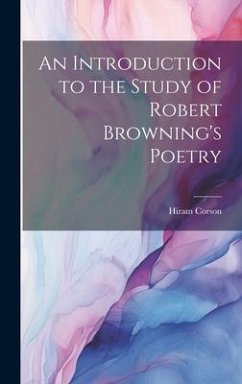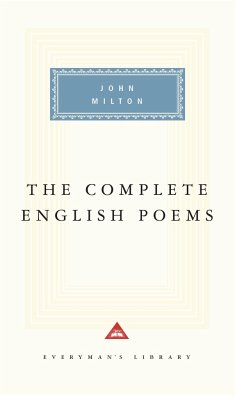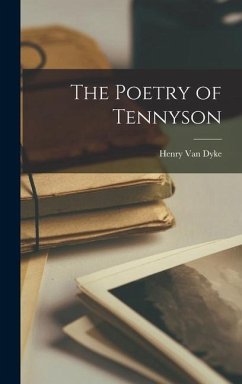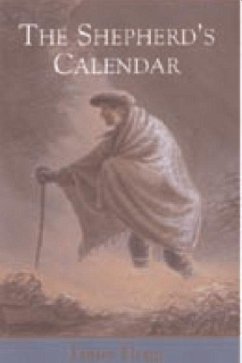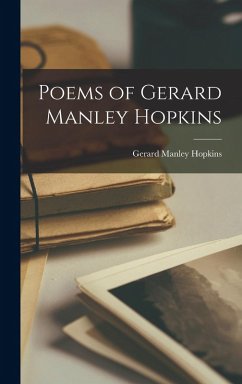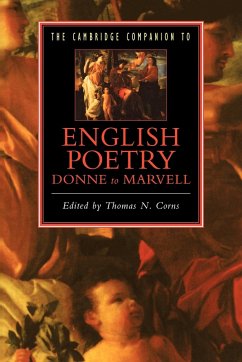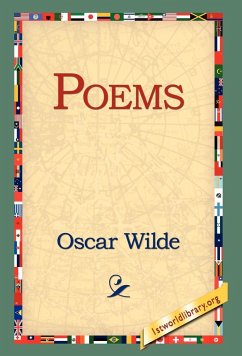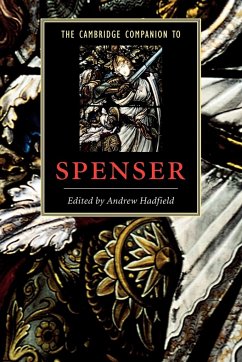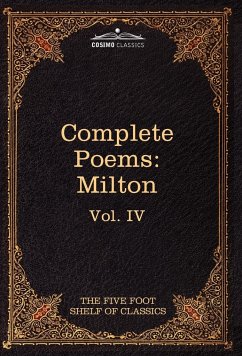
The Complete Poems of John Milton
The Five Foot Shelf of Classics, Vol. IV (in 51 Volumes)
Herausgeber: Eliot, Charles W
Versandkostenfrei!
Versandfertig in über 4 Wochen
37,99 €
inkl. MwSt.
Weitere Ausgaben:

PAYBACK Punkte
19 °P sammeln!
Originally published between 1909 and 1917 under the name "Harvard Classics," this stupendous 51-volume set-a collection of the greatest writings from literature, philosophy, history, and mythology-was assembled by American academic CHARLES WILLIAM ELIOT (1834-1926), Harvard University's longest-serving president. Also known as "Dr. Eliot's Five Foot Shelf," it represented Eliot's belief that a basic liberal education could be gleaned by reading from an anthology of works that could fit on five feet of bookshelf. Volume IV features all the verse written in the English language by English poet ...
Originally published between 1909 and 1917 under the name "Harvard Classics," this stupendous 51-volume set-a collection of the greatest writings from literature, philosophy, history, and mythology-was assembled by American academic CHARLES WILLIAM ELIOT (1834-1926), Harvard University's longest-serving president. Also known as "Dr. Eliot's Five Foot Shelf," it represented Eliot's belief that a basic liberal education could be gleaned by reading from an anthology of works that could fit on five feet of bookshelf. Volume IV features all the verse written in the English language by English poet JOHN MILTON (1608-1674), including the essential Paradise Lost and Paradise Regained, plus "Song on May Morning," "Sonnet to the Nightingale," "The Passion," "To a Virtuous Young Lady," and others.



